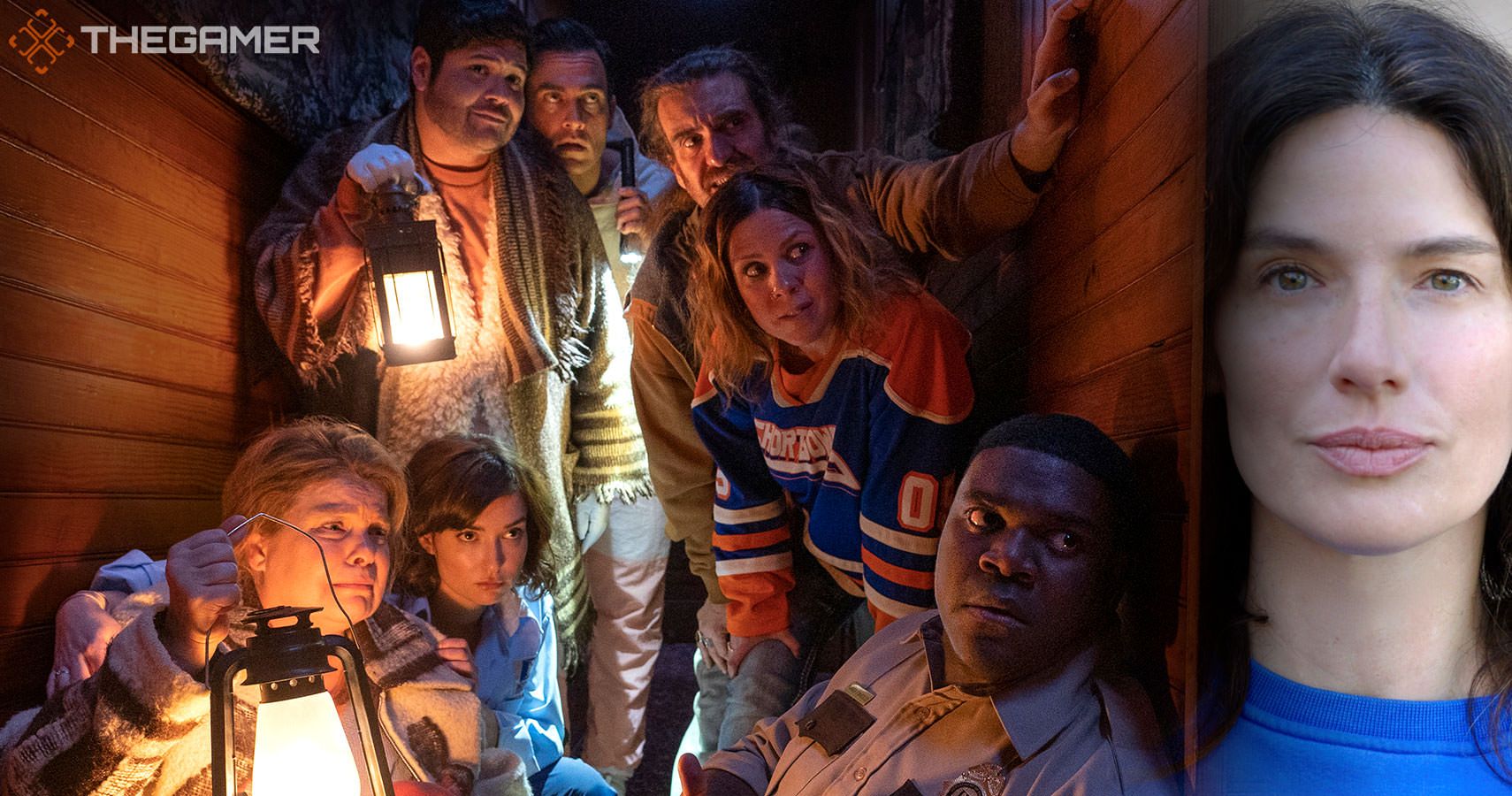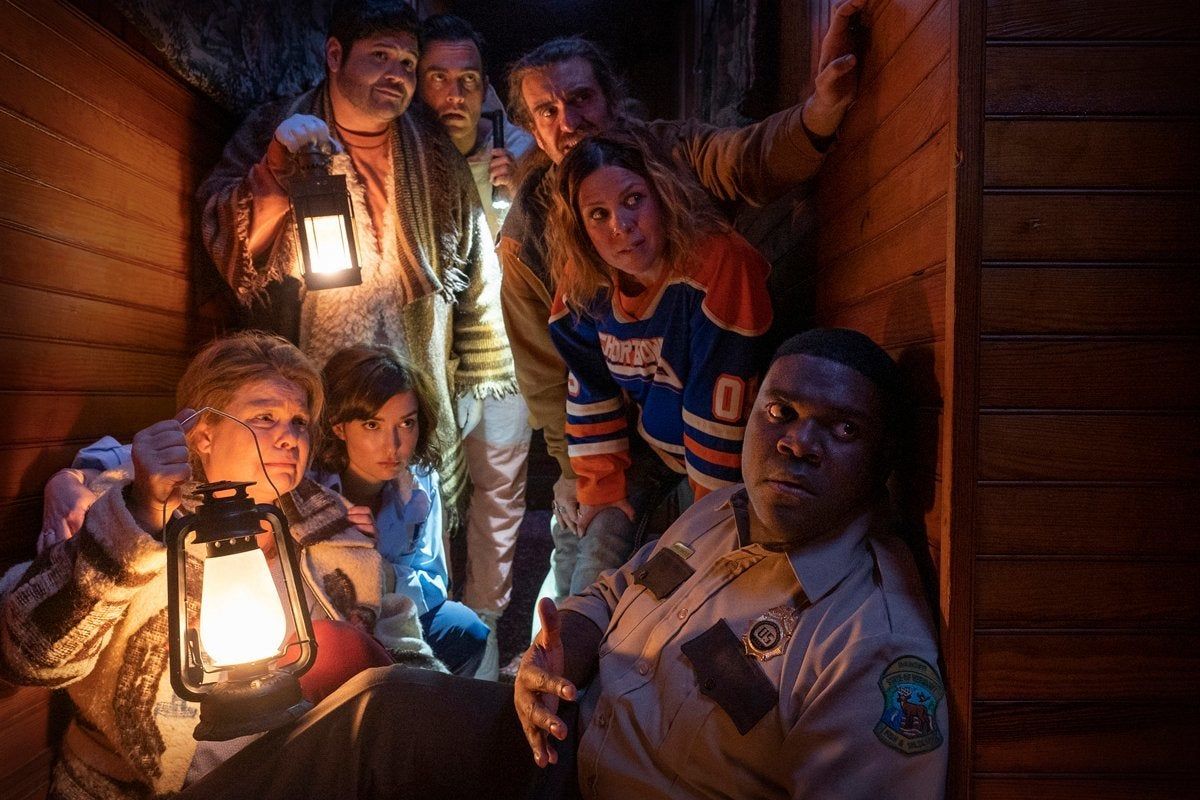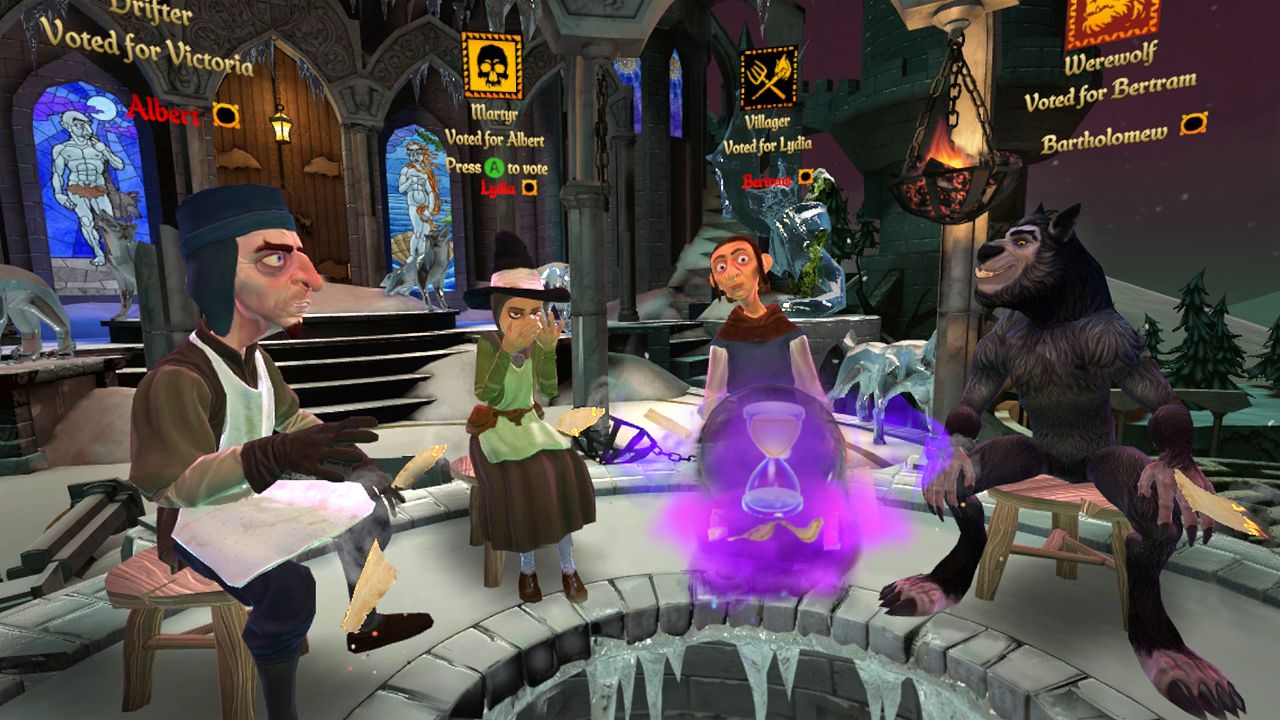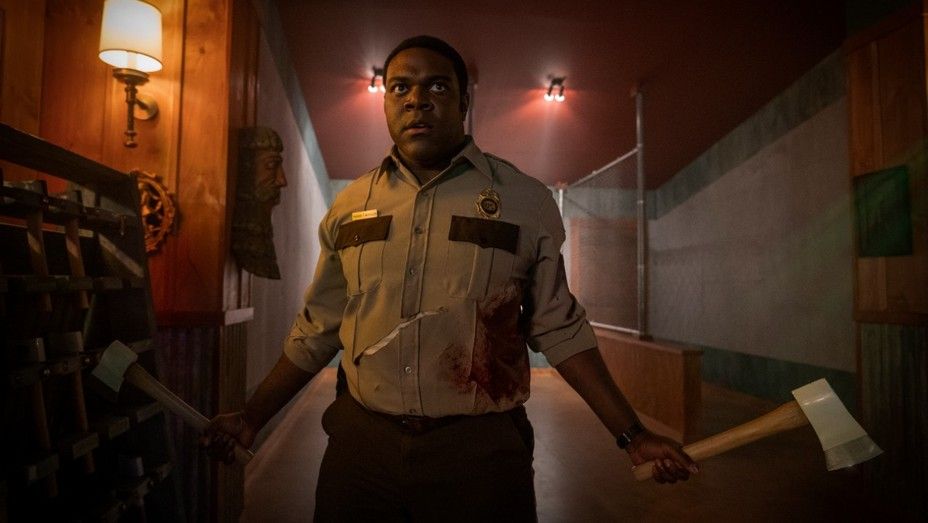“There's some duds, definitely,” Mishna Wolff, writer of upcoming horror-comedy Werewolves Within says of video game adaptations. Werewolves Within is based on the Ubisoft VR title of the same name, but Wolff admits neither she nor Ubisoft were under any illusions about the chequered past of the video game movie. “One of the executives at Ubisoft said video game movie adaptations are like 30 for two now. Or is it two for 30? I'm bad at sports references,” Wolff laughs, “But you know, he was pretty honest about that. Once we got through that the meeting flowed a lot better.”
Minsha Wolff came to work with Ubisoft through the Women's Film & TV Fellowship, a paid six-month program that gives women access to Ubisoft’s IP (as well as the ability to pitch original ideas) and offers mentorship. The current program is open for applications until May 14.
Wolff had previously written books and worked in stand-up, but is passionate about paid fellowships for women, “because women can often bounce around from fellowship to fellowship without ever seeing a pay cheque.” On top of that, Ubisoft’s enviable stack of IPs was a huge draw. “What attracted me to it most was access to Ubisoft's catalogue,” Wolff says. “It was a big deal, to be able to play the games and talk about the games… I had such a good time. I love playing video games. That was my retirement plan - to find a big comfy chair and play games until I die. So I felt like I was retiring early.”
Ubisoft is looking to expand its film and television division, meaning Wolff could have a lot more creative control over her adaptation too. “The games on the table were things that weren't already slotted to do something in [another] studio,” Wolff says. “So I think the opportunity was amplified by the fact that Ubisoft was starting to be a [film] studio and not just a producer at bigger studios. Werewolves Within was something that fell into a budget where they were like; we can just do this, we don't have to ask anyone for permission, we don't have to take it to Warner Bros. It's a fun script, we can just get a director and a cast together and just go do it. And that was super exciting. It's something that rarely happens for screenwriters.”
Despite Ubisoft’s impressive list of hits, Werewolves Within was such an exciting property to Wolf in part because it was much less well-known than the studio’s triple-A goliaths. “Right off the bat, Werewolves Within - while it was a perfectly wonderful game and a lot of fun to play - was not a sacred cow,” Wolff says. “I didn't feel like I was ever going to have the backlash of two million fans screaming down my neck that this isn't what it's supposed to be. So it took a lot of the pressure off. And I felt like I was always in a creative space at Ubisoft. It's really a place you can take risks and throw things out that aren't going to work and not feel judged. It's a very safe space to develop a movie.”
As for the movie itself, it revolves around the very simple idea at the heart of the game - who is the werewolf? After a series of incidents in a small town, the residents turn on each other and begin to suspect their friends and neighbours, all while the audience also tries to suss out the lycanthrope. “The essence was people sitting around the fire trying to hash out which one of them is a werewolf. And I feel like that's what the movie is, right? In playing and in watching gameplay what you realise is that people don't act logically in deciding who the werewolf is. They make very biased decisions. And that lends itself to a certain amount of entertainment, right? If everyone made rational decisions about who their werewolf was, we would have no movie.”
In the game, you literally see through a single character’s eyes because it’s all in VR. In the movie, while it’s shot in third person, we explore the town through the new Ranger, played by Veep’s Sam Richardson. However, he’s not your typical action hero cop or tough-talking video game lead. In fact, his greatest strength is that he’s a super nice dude. “I think there's this idea in movies that the main character always needs to change,” Wolff says. “And it's so pervasive that I had to almost have him change as like a MacGuffin. Because we're so attached to the idea that there's something wrong with our main character that they need to change. And I always enjoy these books where like, the main characters don't change at all, but the world sort of comes to see the wisdom and their point of view. I notice it, usually with female characters like all the Jane Austen heroines, are sort of already perfect, but everyone has to come around to their point of view. They just sort of stay in one place, and the world finally catches up with them. But this movie was about a character who is a connector who brings people together, who unites people and tries to create community instead of discord. And the flip side of that is he's someone who's wildly afraid of conflict. So for me, it was also like putting this character in a situation where everyone's at each other's throat, [which] was going to provide a ton of conflict for him internally because he just hates it when people are fighting.”
Werewolves Within leans into both the horror and comedy of the situation equally, and Wolff thinks this natural humour comes from the fact she was a little “horrored out” by the time her research was done and it came to actually writing the film, meaning she was less reverential towards the genre. Of course, with a background in stand-up, there’s a lot of natural humour seeping through as well. One of the best examples of this is the inventive kills in the movie.. “The horror elements always come from the space that they're occupying,” Wolff says. “So I always ask myself, what's in the room? There's always examples of different ways people have died and different movies that stand out to me. There’s one movie that has a really epic espresso machine death. So one of the first things I thought about was the syrup tap, because it's Vermont, you know? So I think of what's in the room, how that could kill someone? I don't know why, but I sort of worked backwards from there a little bit.”
I suggest to Wolff that this use of whatever is at hand is very reminiscent of the VR genre of the original game, where players reach out and grab whatever they can find, but she tells me, “I don't think I thought of that. Thank you for making me look smarter than I am.”
I'm sure it was subconscious.
The Ubisoft Women's Film & TV Fellowship applications are open until May 14. Werewolves Within releases in June.




